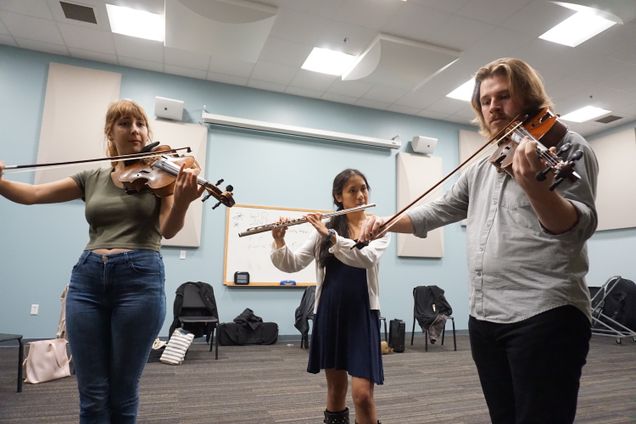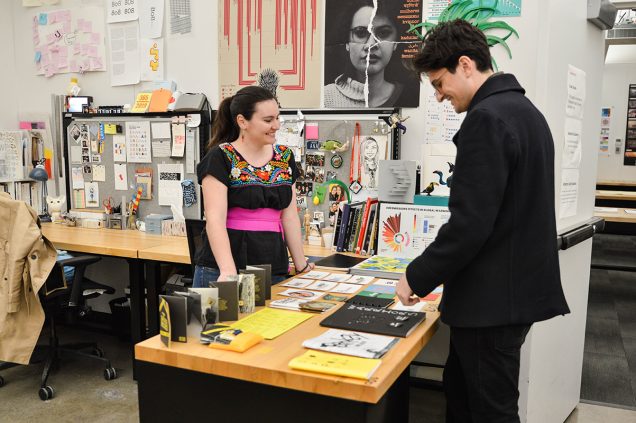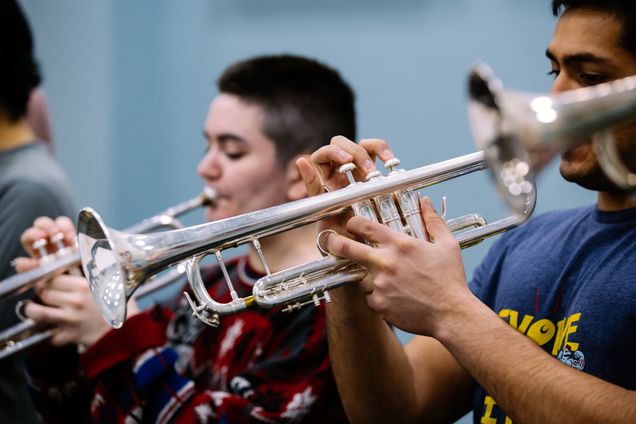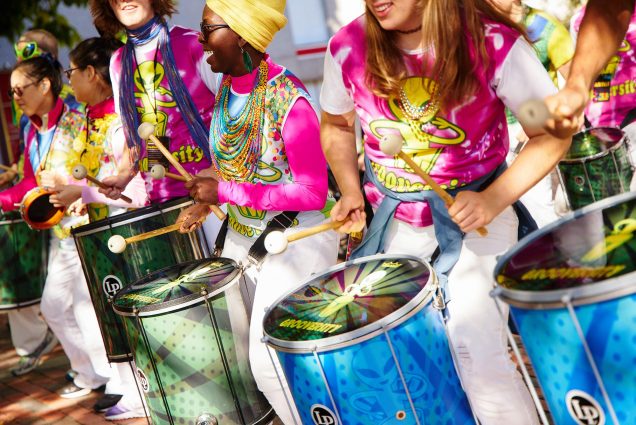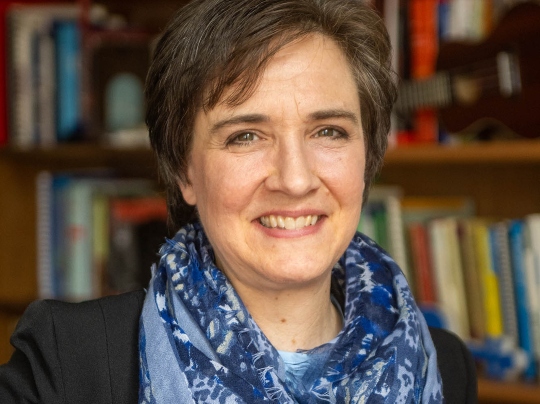The Graduate Certificate in PreK-12 Music Teaching at BU School of Music is for qualified postbaccalaureate students who are interested in receiving initial licensure in PreK–12 Music Education. The program provides students who have a previous degree in music with the skills and knowledge needed to teach music in schools, non-profits, and in community settings.
During coursework, students are introduced to the Professional Standards for Teaching (PSTs) and they develop Subject Matter Knowledge (SMK) through carefully designed coursework that includes guided observation, mixed-reality simulations, and mock teaching. Upon program completion, students will be able to develop standards-based, structured lesson plans, provide targeted feedback, conduct formative assessments and use the results of assessments to inform their teaching practices.
Boston University supports students before, during, and after their classroom experience. The faculty at BU are aware that observing teachers and students and participating in varied music classrooms will provide teacher candidates with exposure to diverse curricula, targeted pedagogical practices, and routines that are part of daily life in the culture of schools and, in particular, music classrooms.
At Boston University, Music Education students are part of an international student body and a professional network that extends beyond graduation.
Curriculum requirements for the Graduate Certificate in PreK-12 Music Teaching can be found on the Academic Bulletin.
Program of Study
The licensure program consists of pre-practicum (coursework, observation, and field work) and practicum (field work). During the pre-practicum experience, students are exposed to a variety of classroom environments. During classroom visits, students will observe, participate, and reflect upon effective pedagogical practices. Students who are in methods courses will design and implement short lessons, receive targeted feedback from faculty, and conduct self-assessments.
At Boston University we employ theory-to-practice learning in our classes and during practicum and fieldwork experiences. We believe that by engaging in relevant professional experiences, our students will become effective educators who are able to cultivate creativity and foster cultural and linguistic competence, social awareness, and emotional intelligence in music classrooms. We enjoy long-standing relationships with many urban and suburban schools so that we can offer our students rewarding field experiences under the guidance of expert teachers, faculty, and administrators.
It is the aim of music education faculty to ensure that teacher candidates are entering the field as well-prepared and effective teachers. Each candidate should be able to support student learning and development through professional attitudes, values, and beliefs demonstrated through both verbal and non-verbal behaviors. These dispositions are essential as candidates must interact with students, families, colleagues, and communities.
A supportive, hands-on environment include small class sizes (6-15 students on average) and access to 10 full-time faculty members who are experts in their music education fields.
Numerous opportunities for off-campus music teaching, learning, and performing through BU campus and the city of Boston.
Boston University offers a number of programs that lead to a professional license or certification. Provided here is state-specific licensure information regarding the Master of Music in Music Education degree program. This information also applies to the Bachelor of Music Education/Master of Music Education 4+1 program as well as the K-12 Music Education Certificate program.



Opportunities
- Applied lessons may lead to performance opportunities in the School of Music including recitals and concerts.
- Students may participate with Arts|Lab, an arts-based initiative at Boston University Medical Campus and Medical Center.
- Boston Afterschool Music Program (BAM) and Boston University Music Engagement (BUME) both provide opportunities for students to participate in music enrichment in the community.
- Students have several ways they can participate in presentations and attend conferences in local, regional, and national organizations including the student chapter of National Association for Music Education (NAfME), Massachusetts Music Educators Association (MMEA), Orff, Kodaly, Dalcroze, and Music Learning Theory local and regional events, the MMEA Professional Development Conference, and the Play On Music Festival.
- There are several University-wide opportunities to engage with and develop music and music education programs including Graduate Research Assistant Opportunities Program and Community Service Center Volunteer Programs.
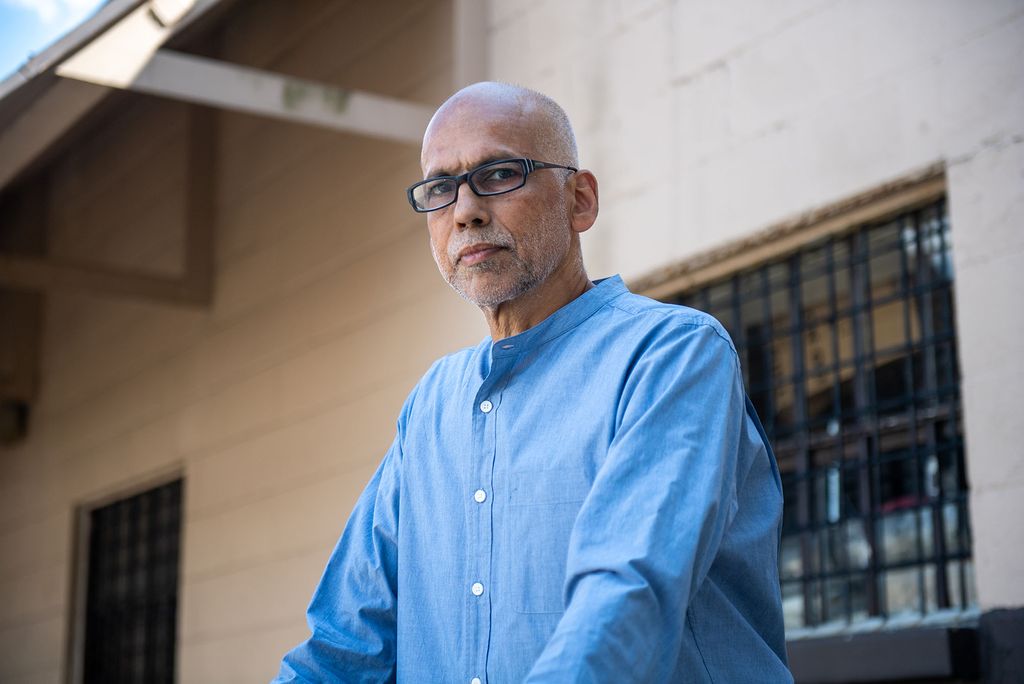
Human Rights Activist and Music Educator André de Quadros Recognized for Career Dedicated to Justice and the Arts
Chorus America has honored the BU music professor for his years teaching music to marginalized people and communities
By Jessica Colarossi | The Brink
It’s about much more than just making the music. To André de Quadros, giving people space to create, write, sing, move, and connect with one another is what matters the most, both in his classrooms at BU and across all the other parts of the world that he influences. His local and global work as a music educator, choral director, composer, and researcher is driven by justice, diversity, and community—especially for marginalized people in prisons, in the Arab world, and on the US-Mexico border.
Outcomes
Boston University students enter the field of music education as well-prepared and effective teachers. Graduates will be able to:
- Demonstrate expertise in subject matter
- Adapt and implement standards-based lessons
- Organize and analyze the results of a variety of assessments
- Employ inclusive practices that support learning
- Create safe learning environments
- Communicate high standards for learning
- Reflect on the effectiveness of lessons and interactions with students and colleagues
- Use professional and personal insights to improve pedagogical practices
- Support for BU music education majors extends beyond college into the graduate’s first teaching job. Additionally, many of our graduates continue to foster a relationship with the music education department as mentor teachers and co-researchers.
- Supportive, tightly-knit learning community
- Emphasis on cutting-edge, research-based pedagogy with a social justice orientation
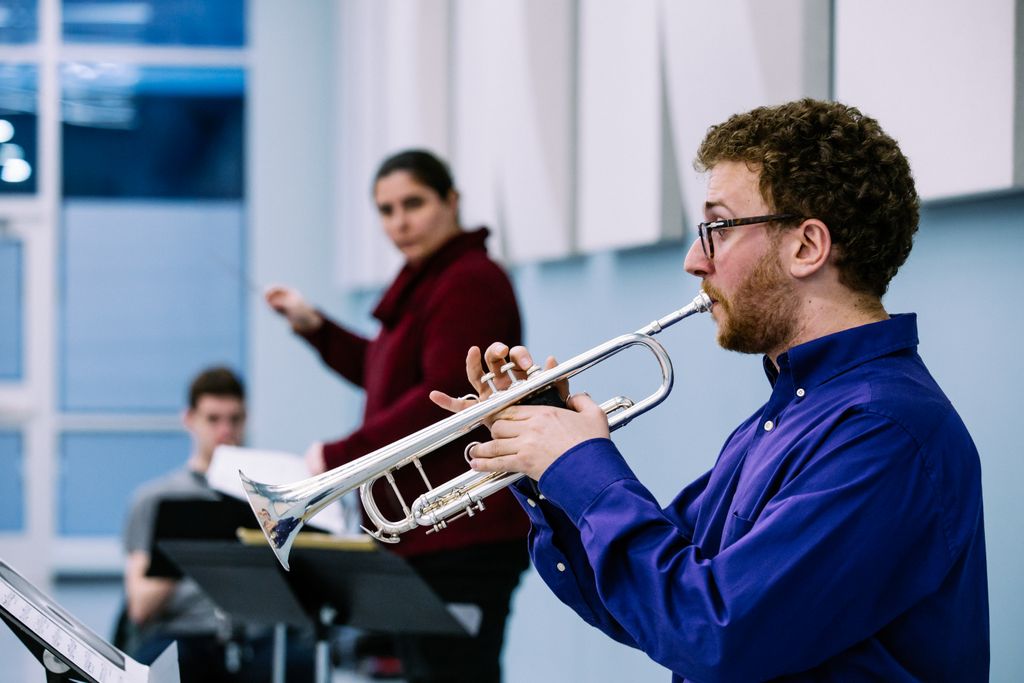
Next Step for Applicants
The best way to determine if BU is right for you is to explore our admission requirements, financial tools, and resources to determine if the program is the right match. You may also want to consider one of our online Music Education degrees at Boston University.
Reach out to Graduate Admissions at visitSOM@bu.edu with any questions along the way or to request information. We are happy to discuss your educational interests and career goals.


